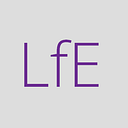Methodological Literature
MSc. Healthcare Management
R24–1156 — ZNON00881 MSc Healthcare Leadership
The Elizabeth Garrett Anderson Senior Leader Apprenticeship ; Level 7 NHS Clinicians (Distance Learning Programme)
Introduction
What is good research? Ask the students to share ideas in the chat. (slide 2)
Show slide 3 with a summary of the main points.
Research skills
slide 4 — discuss being aware of different varities of research methods as we read.
Some resources such as SAGE can help us find out more about these methods.
Tools such as CASP are designed to help with formulating critical questions.
Slide 5 — outlines the main methodological approaches.
Reading and notetaking
slide 6 — being aware of methods when we read and including these observations in our notes.
Importance of the methods section, and use of tools such as Scopus or Scholar to see who has cited a paper and to see if the methodology is critiqued.
slide 7 — continued appraisal of research methods.
My case study
slide 8 — question about supermarkets and plastic bag use as an example.
Slide 9&10 — setting a question which I’ll be able to research — making sure there is information out there I can use
Slide 11 — focussing on the methodology leads us to assess to what extent we will set a different methodology to the papers we have examined.
From reading to creating
Explain how we move form descriptive notetaking to making connections, drawing out themes to setting an original approach based on the question we want to ask.
Ask the students to take one or two things they have learned during the course — this could be an insight, something they’ve read or something new in practice.
They then note down connections — these could be limitations, alternative perspectives or critical questions.
The finally note down their original approach they could take.
Feedback and Questions
